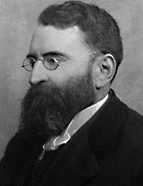

Ricardo Jorge thus refers us to the French and German masters of positivist and/or methodical history, who attempted to bring history closer to the methodology of the natural sciences: defining object and method, the history of the human past was constructed using documents, selected through critical examination of sources, which were then ordered, classified, interpreted, and related to each other, and finally written down, mediating between the past and the present. This methodical history sought the “truth”, eliminating errors or inaccuracies, seeking the original doc t as reliable testimony, through research and criticism, avoiding taking sides through exaltations or condemnations for patriotic or other reasons, given that the purpose of history was only knowledge, excluding the production of feelings or moralism.
This was the historiographical model for Ricardo Jorge, not least because of his familiarity with the exact sciences, always seeking the original “document”, which he sifted through internal and external criticism, valuing archives. Hence, some works dragged on over time, in a succession of articles with additions and corrections, in preparation for final publication, minimising the subjectivity inherent in production, seeking confrontation with other authors’ versions, and saturating the text with quotations and notes. Without literary embellishments, the choice of words and images used to reconstruct the past nevertheless reveal Ricardo Jorge’s completely original vernacular style, with neologisms and unexpected terms borrowed from other areas.
Did Ricardo Jorge see himself as a historian? Criticising Silva Carvalho for omitting any reference to his contributions to the History of Portuguese Medicine, he published the text Um pseudo-historiador justiçado (A pseudo-historian brought to justice, 1932), modestly enrolling himself in the historiographical tribe: “Without wishing to claim to be a historian, I am one of the very few who have dug into the historical soil; Throughout my long career, from its very beginning, I have been dominated by a love of medical and non-medical history, social, national, literary and artistic history. From the revival of each subject through the past to monographs and biographies, there is everything, for what little it is worth, in this varied series of writings. Above all, in everything I touch, there is what might be called a historical feeling – the method that leads one to project the subject in question onto the past in order to better assess its current state and clarify critical judgements. (Um pseudo-historiador..., 1932, p. 14)
This work is financed by national funds through FCT - Foundation for Science and Technology, I.P, in the scope of the projects UIDB/04311/2020 and UIDP/04311/2020.
